Highly Sensitive Introverts’ Strengths and Struggles
This is chapter 3 from the book by Benita A. Esposito, MA:
The Gifted Highly Sensitive Introvert:
Wisdom for Emotional Healing and
Expressing Your Radiant Authentic Self
“In my opinion, all highly sensitive people are gifted because of their trait itself. But some are unusually so. Indeed, one reason for the idea of “liberated” HSPs was the seemingly odd mixture of traits emerging from study after study of gifted adults: impulsivity, curiosity, the strong need for independence, a high energy level, along with introversion, intuitiveness, emotional sensitivity, and nonconformity.”
–Elaine N. Aron, The Highly Sensitive Person
The most important thing I want you to know is that highly sensitive people have plenty of wonderful traits that non-highly sensitive people don’t come by so easily. Just because 80% of the population is wired differently doesn’t mean we need fixing. We are often misunderstood, and many times we don’t understand ourselves until we get some good education under our belts.
The trouble is that on the surface we look pretty much like everyone else. We may assume others are like us, and we repeatedly get shocked into realizing that’s not true. We desperately want our mates, fathers, mothers, supervisors and religious leaders to understand us. When they don’t, it stings.
Before reading The Highly Sensitive Person by Dr. Elaine Aron, I didn’t understand why I had so much difficulty in romance or why I got so exhausted or why I had so much physical distress. Although I’d done plenty of personal growth work for 20 years and I thought I knew myself well, I discovered that I had more to learn.
I’m a highly sensitive person and an introvert. Twenty percent of the population is highly sensitive, and seventy percent of highly sensitive people are introverts according to Dr. Aron’s research. (The Highly Sensitive Person, 1997). She says high sensitivity helps us survive as a species. We make a significant contribution to society.
Are you a highly sensitive introvert?
Take the quiz to see how you score.
Here’s an overview of the most important things I’ve learned about being a highly sensitive person.
Please remember two things: While some people might say they’re sensitive, highly sensitive people experience these qualities much more intensely. Secondly, not all highly sensitive people experience all these traits or to the same degree.
1. We’re made for emotional intimacy. We feel most fulfilled when people understand us and connect with us on an emotional level. When we have at least one or two close friends, we’re much happier, even if we don’t have the rest of our lives figured out. Romance with a highly sensitive person can be exquisitely fulfilling because it’s easy for us to know what pleases our partner.
One of our greatest gifts is to be able to cultivate a beautiful, soothing ambiance where others feel safe to open up and share. We thrive on meaningful interactions, so we get bored with superficial conversations. Cocktail parties and networking events where we don’t know people are particularly painful for highly sensitive introverts. If you’re an extrovert, you’ll have an easier time mingling.
2. We yearn for spiritual intimacy. From a young age, the great mysteries call to us. For example, when I was 12 years old, I was fascinated by the healing miracles of Jesus. Little did I know at the time, that was the beginning of my career as a spiritual healer and psychotherapist.
3. We’re empathic. Hundreds of cat-like whiskers sense the feelings of people, animals and plants all around us. We soak up feelings from people even when we don’t realize we’re doing it … joy and sorrow … all of it. It’s easy for us to understand people, but at the same time, we can get overloaded with feeling everyone’s emotions.
4. Some of us are intuitive empaths. That means we have empathy on steroids. We feel in our bodies what others feel in their bodies. We may have trouble knowing what is ours and what belongs to others. We may actually take on the pain of others in the process of helping them heal. I’ll tell you more about this in chapter 5.
5. Our emotions fire more intensely and last longer than non-highly sensitive people. Learning to manage our emotions is one of our most important lessons. If we stuff our emotions, they bubble under the surface like a smoldering volcano that may erupt at the most inopportune time. Until we become more self-aware, heal our family of origin wounds and learn to communicate tactfully, our relationships may be troubled. Of course, it takes two to tango. Both people need to learn the dance steps of healthy emotional intimacy.
Highly sensitive people tend to have anxiety and depression, especially if we didn’t grow up in a home where we felt securely attached. I’ll share plenty of teaching stories to help you with this.
Highly sensitive people respond more intensely to pleasant emotions, too, and we enjoy contributing to our loved ones’ happiness.
6. We learn well from experience precisely because we have heightened emotions. Dr. Aron reports that people aren’t motivated to learn unless our emotions are stimulated. We’ve got big emotions so we’re motivated to learn a lot! Our gut-level feelings can feed us information to determine if a person is trustworthy. We need to hone these skills so our people-pleasing tendency doesn’t ignore the red flags.
7. We need to manage our stress and take good care of our bodies. Psychotherapy helps people learn to self-soothe so our emotions can simmer down. Emotional intensity directly impacts the body, and most of us have our share of stress-related illnesses. So it’s doubly important to take good care of our bodies and tend to the basics every day: eight hours of sleep, deep meditation where the mind chatter stops, plenty of pure water, healthy food and exercise.
8. Sometimes we bite off more than we can chew because we’re visionaries with big dreams. When I built one of my dream homes, I could afford the mortgage payment until the adjustable rate ballooned. Then the increased monthly payment, coupled with an unpredictable life crisis, generated overwhelming stress. That pain was the catalyst to make wiser financial decisions, track my money closely and accumulate enough money for a six-month emergency fund. I learned to pair practicality with idealism.
9. We become over-stimulated by sensory stimuli. We’re easily exhausted because we tune into more sensory data than non-highly sensitive people. Crowds, loud noises, bright lights, chemicals, coarse fabrics, unpleasant fragrances, people’s emotions … all these things can be taxing. Let me emphasize again: it helps to find a quiet place to meditate every day so we can enjoy deep relaxation.
10. We love beauty and creativity. We especially love the beauty of Nature: sun rays reaching all the way to heaven, waterfalls splashing into a summer swimming hole, majestic purple mountains at sunset, a stream gurgling through the woods or the roar of the ocean. Other kinds of beauty move us as well: Michelangelo’s “David,” Pavarotti’s captivating tenor voice or a perfectly turned phrase in a poem.
11. We’re wired for deep processing. We may reflect on an issue for hours, days, weeks or years. The more fierce our emotions, the more preoccupied we become until we put all the puzzle pieces together. We search for wisdom and meaning. When someone asks us a question, we might need time to reflect on what we think, what we feel and how to say it tactfully. Instead of feeling pressured to answer, it might be wise to say, “Let me think about that and get back to you tomorrow.”
12. We’re sensitive to criticism. Dr. Aron reports that criticism impacts us three times stronger than non-highly sensitive people. It’s a killer for us. (The Highly Sensitive Person, 1997) Even so, we’re likely to explore the criticism to see if there is any speck of truth in it so we can improve. We can be critical too. Instead of reacting defensively, our relationships improve when we learn how to be assertive instead of aggressive or non-assertive.
13. We’re conscientious and responsible. We reflect on our behavior. We try to understand ourselves and other people, and we want harmony. If we let you down, we’ll feel bad, maybe even ashamed.
14. We’re sensitive to subtleties. Even the tiniest discord between people can prompt us to want to help make things better. We know how to make people feel comfortable, like changing the temperature or lighting in a room. But when we’re over-stimulated, we can become reactive. It’s a good idea to meditate or take a nap or exercise before we get to that point. I keep repeating this for a good reason. Meditation is one of the most effective tools to keep our nervous systems in the zone of resilience.
15. We’re compassionate leaders. Many of us are talented, innovative visionaries who are a driving force to improve our families, companies and communities. We can see the potential in people, often better than they can. We intuitively see how to help people thrive. We see possibilities for making a business succeed that no one else can see. We can understand multiple layers of complexity, decipher the code to see how the whole design was constructed, and make predictions that baffle those who aren’t able to understand how we arrived at our conclusions.
16. We think ahead to prevent crises. We can suggest ways to repair a calamity before it ever happens, and we can take action to minimize potential suffering. If there’s a fire in the house, we’re the first ones to smell smoke and get people to safety.
17. Some of us are healers. We can help heal broken hearts and mend tormented minds better than anyone on the planet. We know when people are hurting and can figure out why.
18. We’re mediators. When grounded, we confront people tactfully and stand up for ourselves. We can mediate conflict and foster harmony between parents and children or between couples or between countries.
19. We’re intuitive. Our instincts help us make good decisions, especially when we lack enough logical data. Of course, we’re not always accurate, but we have the ability to refine our intuition with practice. When I didn’t heed the warnings of my intuition several times, I suffered the consequences, which only reinforced my commitment to hone this useful skill. You’ll hear more about that in chapter 36.
20. We may have trouble setting appropriate boundaries, especially if we grew up in a family where we didn’t feel securely attached. We may be people-pleasers and let others take advantage of us. We might be afraid to express our Authentic Self for fear of being judged and misunderstood. Ridicule and rejection hurt us deeply. We don’t like conflict so sometimes we go along to get along. We might complain, “Why is it that I understand everyone else’s needs, and they don’t reciprocate?” When loved ones aren’t kind to us, we may remain loyal to them, trying to get them to understand and love us. Some of us get defensive and push people away to protect ourselves. We may have trouble opening up to receive love, although we may desperately want it.
21. We need the freedom to be ourselves. We may leave a relationship or a job where we feel a lack of genuine emotional connection and respect for our individuality. If we stay, our bodies will deteriorate from the stress. It hurts to be unappreciated and misunderstood over and over again.
22. We may be timid when we enter a new situation such as a party where we don’t know anyone. But if we go with someone we like, we’ll feel much more confident.
Psychotherapy and spiritual counseling can help us heal emotional wounds and develop healthy coping skills.
I want you to be encouraged. I’ll help you learn how to cultivate your innate gifts and manage the challenges of being highly sensitive.
Most of us highly sensitive people have struggled with revealing our Authentic Self, the one we have tried to hide by showing the world a more polished version of ourselves. We may suffer for years because we compare ourselves to non-highly sensitive people, telling ourselves that we should be like them, running here and there and everywhere like the Energizer Bunny. Some of us may live our whole lives believing that we are too sensitive and that we’re inferior. We may accept the labels that others place on us, such as “too emotional, too picky or too analytical.”
But there will probably come a time when we get tired of the suffering, and we search for help. Just like in the story of the Ugly Duckling, the swan discovered that she was not a duck. She was not supposed to look like a duck or act like a duck. She was a beautiful swan.
Our pain is not a crippling force that has to limit us. It can
be used as our greatest tool to embrace our Authentic Self.
But before we can claim our true identity, we may need to undergo our own transformational process, like the caterpillar turning into a butterfly. While it may seem like we are dying, we are really birthing ourselves into our full radiance. Some of our desperate cries into the night become the lines of compelling poetry, music and literature that touch others deeply.
Your high sensitivity is not a flaw. I want you to know that you are beautiful just the way you are. I want you to feel like you finally belong. I want you to feel understood and loved.
You can learn tools to manage your high sensitivity so you don’t get exhausted and live with so much emotional and physical pain.
Mostly, I want you to know that you are not alone, and that you can learn how to feel whole and complete even though harsh criticism may have been heaped upon you.
You can successfully navigate your Hero’s Journey as a highly sensitive person while being true to your Authentic Self.
I want you to shine. I want you to feel strong even when the winds of chaos whip all around you.
I want you to cherish your tender sensitive self and know how valuable you are to me and to the world that desperately needs your heart, your soul and your beautiful visions of how life can be … if only they would just listen … and understand you.
Conclusion
I offer the stories in my book to you in the hopes that your Hero’s Journey to your Authentic Self will be swifter and easier than mine. I’ll help you learn from my mistakes and find the courage to take risks so you can create a flourishing life. You’ll learn vicariously as you walk with me along my Hero’s Journey to the Authentic Self. If you begin to judge yourself, like I often have, know that I welcome you just the way you are.
Author: Benita A. Esposito, MA
Contact me for your complimentary 10-minute get-acquainted phone interview to see how I can help you reach your goals.
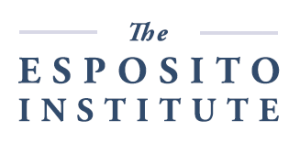
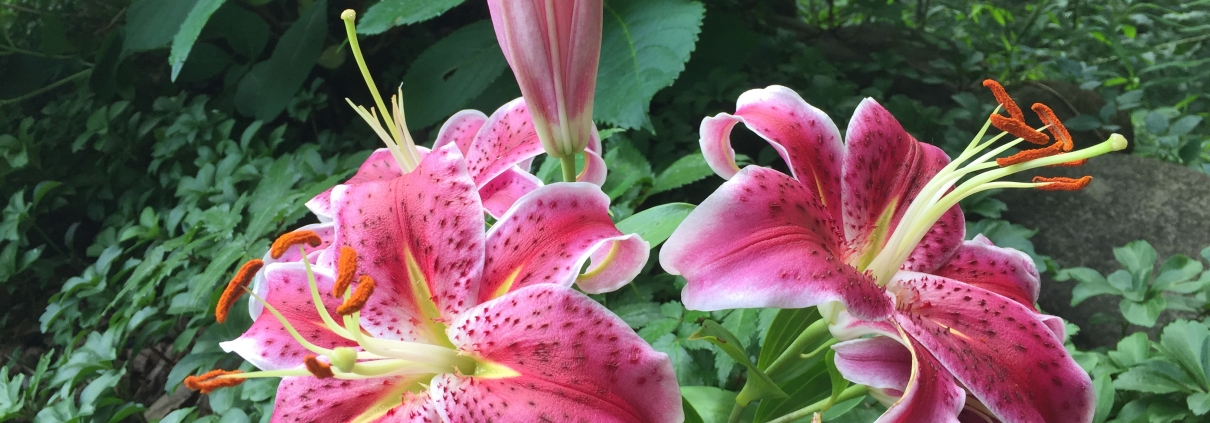
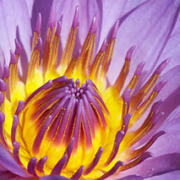


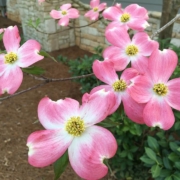
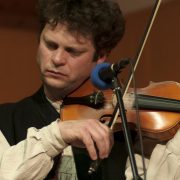




Leave a Reply
Want to join the discussion?Feel free to contribute!